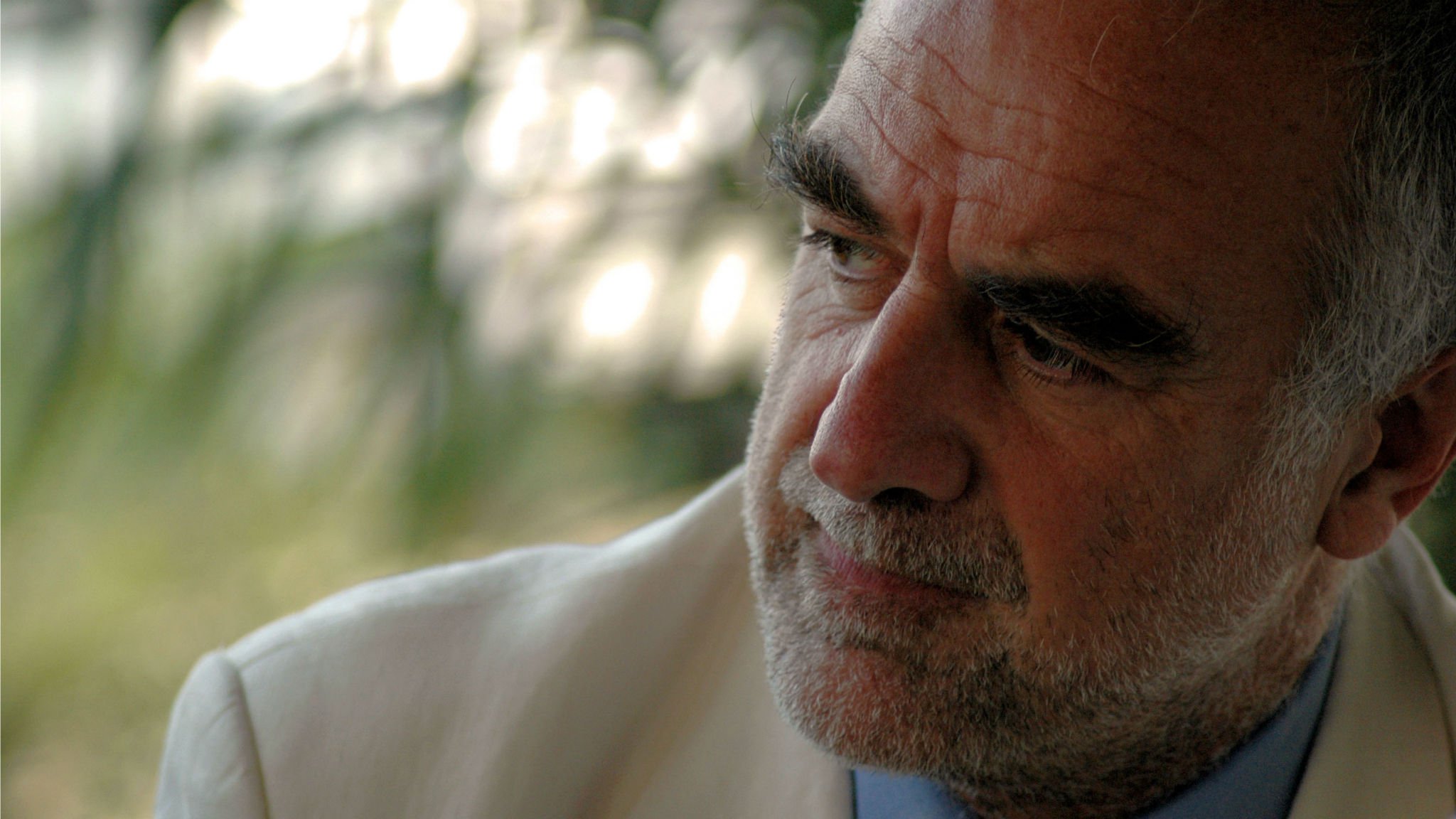By David Swanson, World BEYOND War, April 8, 2020
The film “Prosecutor,” tells the story of the International Criminal Court, with a focus on its first chief prosecutor, Luis Moreno-Ocampo, with lots of footage of him in the year 2009. He held that office from 2003 to 2012.
The film opens with the Prosecutor helicoptering into an African village to inform the people that the ICC is bringing its form of justice to locations all over the world, not just their village. But, of course, we all know it isn’t true, and we know now that even in the decade since the film was made, the ICC has not indicted anyone from the United States or any NATO nation or Israel or Russia or China or anywhere outside of Africa.
Moreno-Ocampo had successfully prosecuted top officials in Argentina in the 1980s. But when he began at the ICC the focus was on Africa. This was in part because African nations asked for these prosecutions. And some who argued against a bias toward Africa were, of course, criminal defendants whose motivations were far from selfless.
The ICC at first also lacked the ability to prosecute the crime of war, as opposed to particular crimes within wars. (It now has that ability but still hasn’t used it.) So, we see Moreno-Ocampo and his colleagues prosecuting the use of child soldiers, as though using adults would be perfectly fine.
Reinforcing the idea of proper acceptable wars is rhetoric in the film, such as the assertion: “What the Nazis did was not acts of war. They were crimes.” This claim is quite dangerous nonsense. The Nuremberg trials were based on the Kellogg-Briand Pact which had simply banned war. The trials twisted the law inexcusably with the pretense that it banned “aggressive war,” and expanded the law quite reasonably to include the constituent parts of the war as particular crimes. But they were only crimes because they were part of the larger crime of war, a crime defined at Nuremberg as the supreme international crime because it encompasses many others. And war remains a crime under the Kellogg-Briand Pact and the U.N. Charter.
The film mentions Israeli and U.S. crimes in Gaza and Afghanistan respectively, but nobody is indicted, not then and not since then. Instead, we see prosecutions of Africans, including the indictment of the president of Sudan, as well as various individuals in Congo and Uganda, though not of course Western darlings like Paul Kagame. We see Moreno-Ocampo travel to Uganda to persuade President Museveni (who himself could be indicted many times over) not to allow the indicted president of Sudan to visit without facing arrest. We also see, much to the ICC’s credit, the prosecutions of “war crimes” on opposing sides of the same war – something I see as a very useful step toward a goal Moreno-Ocampo might not share, the goal of prosecuting the waging of war by all who wage it.
The film takes on a number of criticisms of the ICC. One is the argument that peace requires compromise, that threats of prosecutions can create an incentive against negotiating a peace. The film is, of course, a film, not a book, so it just gives us some quotes on each side and settles nothing. I suspect, however, that a careful review of the evidence would weigh against this argument for refraining from prosecuting crimes. After all, the people making this argument are not defendants themselves but others. And they don’t seem to have any body of evidence showing wars to last longer when prosecutions are threatened. Meanwhile, the ICC does point to evidence that bringing indictments can be followed by advancements toward peace, as well as that threatening prosecution of the use of child soldiers in one part of the world can apparently lead to a reduction in their use in other places.
The film also touches on the claim that the ICC cannot succeed without first creating a global army. This is clearly not the case. The ICC might not succeed without the support of the world’s big war makers who hold veto power at the UN Security Council, but with their support it would have many powerful tools through which to pursue those it indicts — political and economic means of pressing for extraditions.
What can the ICC best do, so long as it is not out from under the thumb of the big war makers? Well, I think its current staff clearly knows what it could do, because they keep teasing us with it. For many years, they’ve been gesturing toward the idea of prosecuting U.S. crimes committed in ICC-member-state Afghanistan. Moreno-Ocampo maintains repeatedly in this film that legitimacy and even-handedness are absolutely crucial for the court’s very survival. I agree. Indict or say good night. The ICC must indict Western war makers for atrocities during longstanding permawars, and must also make clear to the world that it will indict in a timely fashion those responsible for initiating new wars.
Ben Ferencz makes the right point in the film: If the ICC is weak, the solution is to strengthen it. Part of that strength has to come through ceasing to be a court exclusively for Africans.










One Response
I once petitioned ICC, nothing happened!